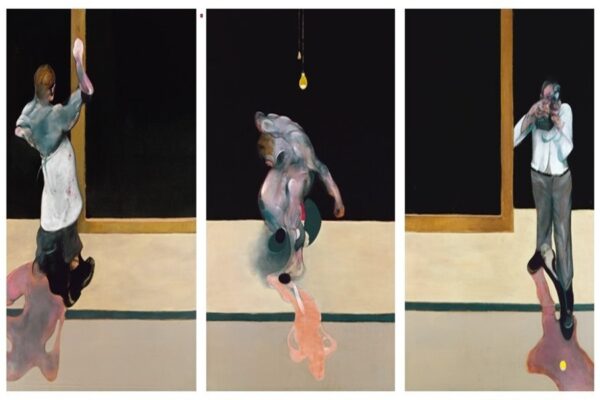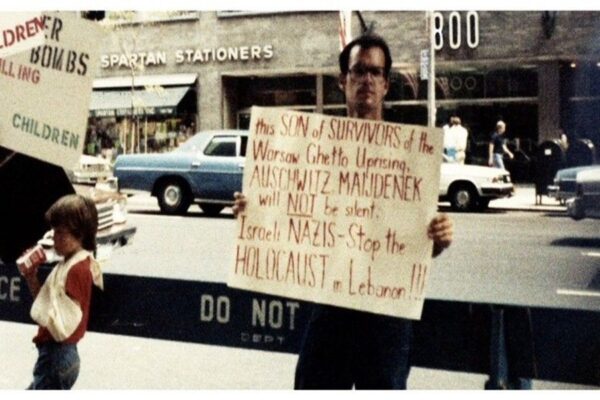Klasa, klasna teorija, klasna borba
Pogledajte snimku seminara "Class, Class Theory, Class Struggle", održanog 17-18. listopada 2015. u sklopu programa CRS-a posvećenog teoriji klase. Stipe Ćurković je govorio o potrebi diferenciranja između proučavanja eksplanatornih dosega i granica strukturne klasne analize kapitalističkog načina proizvodnje i empirijskih, povijesnih i socioloških klasnih analiza konkretnih kapitalističkih društava. John Milios je kroz klasnu analizu grčkog društva predstavio uvjete pod kojima politike mjera štednje mogu oblikovati širu proturadničku društvenu koaliciju temeljenu na konsenzusu dijela "srednjih klasa", dok je u večernjem razgovoru ponudio svoje viđenje dosadašnjeg razvoja političke situacije u Grčkoj. Dora Levačić i Mislav Žitko su s konceptualnog i metodološkog aspekta razmotrili različite pristupe klasnoj analizi. Branko Bembič je izložio historijat 'specifične' slovenske tranzicije i presjek trenutnih radničkih organizacija u Sloveniji, čija ograničenja predlaže premostiti strukturiranjem istih u istraživačke organizacije s naglaskom na vanparlamentarni rad.

Seminar:
“Class, Class Theory, Class Struggle”
Few concepts developed by Marx and the many theoretical and political currents claiming continuity with his critical project can rival ‘class’ in their distinctive association with Marxism in all its contested plurality. Yet, the widespread consensus on the centrality of the concept for Marxism, shared by both proponents and detractors, is significantly complicated by the persistent disputes over its theoretical content. As a central category in the Marxian/Marxist theoretical arsenal, it remains subject to a wide variety of conflicting interpretations and mutually exclusive theoretical projects. Marx himself failed to provide a systemic treatment of the concept. Notoriously, the discussion of class at the end of Volume III of Capital was left a mere fragment, while the conjunctural analyses presented in political and historical writings such as The Eighteenth Brumaire and The Class Struggle in France raise questions as to their compatibility (or lack thereof) with the systemic development of categories in Capital and other texts of Marx’s mature critique of political economy.
This seeming lack of coherence facilitated the development of diverging traditions, providing textual footholds for often mutually hostile approaches. The history of Marxism is thus in large part also the long history of disputes between what usually have been called ‘structural’ and more historically founded attempts at tackling the problem, with deep implications for the explanatory status of class and class struggle in Marx’s overall project as well as questions pertaining to political subjectivation, agency (their limits and conditions) and political strategy – all of which remains disputed terrain to this day. To this must be added various attempts to improve on perceived deficits or omissions in Marx’s theory by recourse to other, non-Marxists/non-Marxian theoretical traditions and approaches, amongst which more or less explicitly ‘Weberian’ approaches occupy a privileged position. Predictably, though, the often eclectic and merely additive character of many such ‘innovations’ did not go unnoticed. Rather than overcoming or silencing earlier questions as to the possibility of an internally coherent Marxist class theory, capable of plausibly superseding or bridging the longstanding structural/historical divide, such approaches more often than not amounted to their proliferation and amplification, eventually adding to them the question of the possibility of their coherent integration with various stratification theories.
While these disputes may be considered to some extent ‘internal’ – arising from fundamentally affirmative approaches to the question of class and its explanatory relevance for contemporary capitalist societies, the rise of ‘new’ social movements and the perceived crisis and limits of older forms of class-based politics since the 1960s resulted in new challenges, often in the form of an outright dismissal of the ‘privileged’ status of class and class politics, in both their explanatory and political-organizational dimensions. The spreading and deepening of the influence of these new theories and the related shifts in political focus on the left – conducted under the banner of a critique and rejection of ‘class reductionism’ (often a mere code-word for Marxism itself) – has placed class-theoretical approaches in a defensive position. Ironically, this radical revision of the core inventory of the conceptual arsenal of the historical left gathered pace at a conjuncture which in retrospect may most plausibly be conceptualized as an intensification of class politics from above in the form of what has often been labeled the neoliberal offensive or ‘counterrevolution’.
In Eastern Europe, the crisis and collapse of ‘real socialism’ and the subsequent drama of capitalist restoration intensified the predicaments and disorientation of the left, often leading to its wholesale dissolution in favor of an assertive and confident (neo)liberalism, virtually erasing class – considered irredeemably ‘contaminated’ by its association with the legitimizing discourse of the toppled communist regimes – as a subject of theoretical and political concern at the very moment of deep and traumatic shifts in the class composition of these societies.
This Seminar will try to confront the following (and related) questions: Is there a coherent class theory in Marx? What to make of the cacophonic plurality of class theories within and around Marxism? Can the explanatory centrality of the concept of class for the understanding of contemporary capitalist societies be maintained and coherently argued for? What is the explanatory scope and where lie the explanatory limits of class-based approaches to the understanding of the complexities of capitalist societies? How to approach the vexed problem of political subjectivation and what is its relation to class? How to respond to challenges to class-based politics from within the left? What are the limits and possible virtues, both of a class-based approach and of the various challenges to it? Is it possible to theoretically and politically integrate these challenges into the project of a non-reductive renewal of class analysis and politics or is such an endeavor doomed from the start? On what grounds may such an encounter be made both analytically and politically productive?
(Izvor)
The third volume of Marx’s Capital ends with a short chapter on class, albeit an unfinished one. Based on some recent scholarship on class theory in Marx’s mature writings from the domain of the critique of political economy, I will argue that these writings nevertheless contain a coherent structural class analysis of the capitalist mode of production in its ideal average. What they do not contain, however, is a theoretical basis for the ‘optimistic fatalism’ of much of traditional marxism, i.e. the belief in the inevitability of an anti-capitalist or revolutionary political orientation of the working class. In fact, Marx’s analysis in Capital can be shown to provide systemic theoretical arguments against such a reading. To say that the passage from the analysis of the structural class position to (revolutionary) political subjectivation cannot be assumed to be predetermined and/or automatic is not to deny the relevance of structural class analysis for anticapitalist politics (as post-marxism would have it). Rather, it points to the necessity to differentiate between levels of abstraction in analysis: investigating the explanatory scope and limits of structural class analysis of the capitalist mode of production and differentiating it from empirical, historical and sociological class analysis of concrete capitalist societies is a necessary step in overcoming reductionism and developing a more adequate understanding of the complex relationship between class and politics.
- Stipe Ćurković is a member of the Centre for Labour Studies.
After the outbreak of the 2008 global economic crisis, extreme neoliberal austerity policies prevailed in many parts of the developed capitalist world, especially in the European Union (EU) and the Euro-area (EA). Austerity has been criticized as an irrational policy, which afflicts the vast majority of society, as it further deteriorates the economic crisis by creating a vicious cycle of falling effective demand, recession and over-indebtedness. However, these criticisms can hardly explain why this “irrational” or “wrong” policy persists, despite its “failures”. In reality, economic crises express themselves not only in a lack of effective demand, but above all in a reduction of profitability of the capitalist class. Austerity constitutes a strategy for raising capital’s profit rate.
This paper examines under which conditions the prevailing capitalist strategy of neoliberalism and austerity may mould a broader anti-labour social coalition, by enforcing the consensus of a part of the “middle classes”, defined as (i) the traditional petty bourgeoisie, (ii) the new petty bourgeoisie and (iii) middle bourgeoisie.
- John Milios is a professor of Political Economy at the National Technical University of Athens and author and co-author of many books, including Rethinking Imperialism: A Study of Capitalist Rule and A Political Economy of Contemporary Capitalism: Demystifying Finance. He was chief economic advisor of Syriza until March 2015.
Chairman: Marko Kostanić
In this conversation we will tackle recent political developments in Greece, political trajectory of Syriza and prospects for Popular Unity as a new organization on the Left. Based on Greek dynamics we will try to discuss some broader political lessons for the Left which can be learned from this example. John Milios will also talk about his experience of being chief economic advisor of Syriza, with a special accent on relations between Marxist analytical framework and concrete political struggles.
The post-socialist period in Croatia has been marked by abandonment of class analysis in the social sciences and public discourse. The rise of nationalism and consolidation of capitalist market institutions, together with the discovery of postmodern sensibilities in academia, have forged the conditions for displacement of class to the margins of economy and society by virtue of its inherent connection with the ‘Marxist ideology’. In the first step, this paper aims to develop a notion of class by taking into account the recent contributions developed by Goldthorpe, Savage and others. The paper will offer arguments against ‘employment-based’ and ‘cultural theory of class’. In the second step, a class map based on a variety of indicators pertinent to the Croatian social structure in the post-socialist period will be put forward and discussed on conceptual and methodological level. The overall objective of the paper is to bridge the gap created by the suppression of class analysis in the last quarter century and embed the discourse on social class in post-socialism in the discussions that are currently taking place in the advanced capitalist societies.
- Dora Levačić is a sociologist and a member of Organisation for Workers Initiative and Democratisation from Zagreb.
- Mislav Žitko is a PhD candidate at the Faculty of Humanities and Social Sciences in Zagreb and a member of the Centre for Labour Studies
This paper is composed of three parts. The first part interprets the specific path of Slovenian transition from self-managed socialism to capitalism by disentangling the class alliances underlying the transitional balance of forces and its gradual transformation in the past decade. This is followed by an account of the current situation of working class organisations in Slovenia and the challenges they face. Finally, the paper outlines the idea of working class organisation structured as a research organisation capable of tackling the problems identified in the second part of the paper.
- Branko Bembič is a PhD candidate at the University of Ljubljana. His main fields of interest are the critique of political economy and the class culture of workers.








